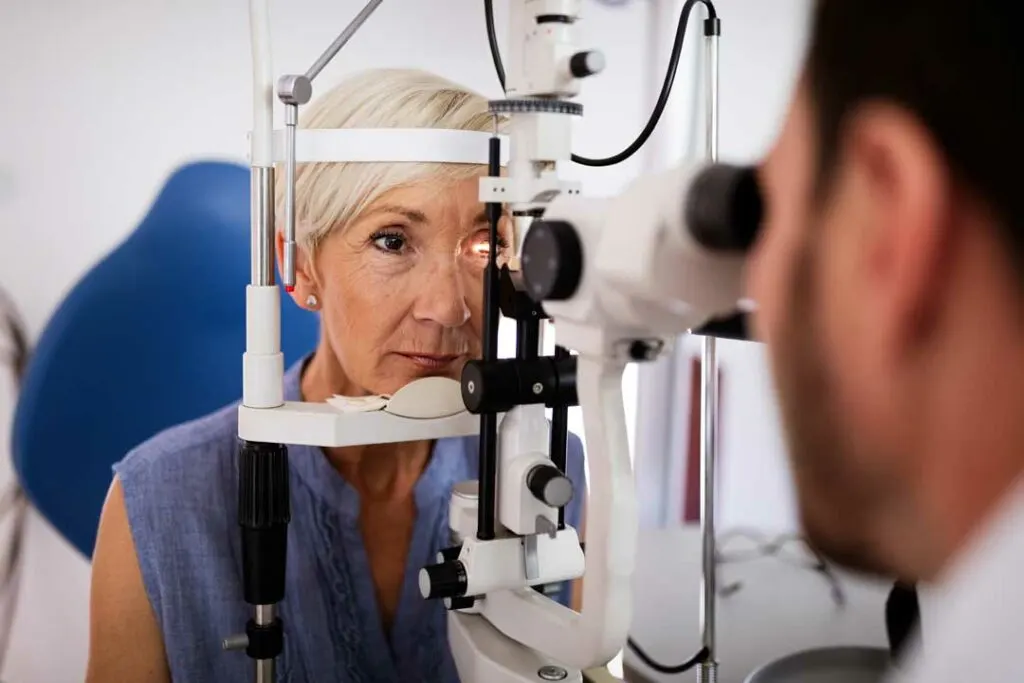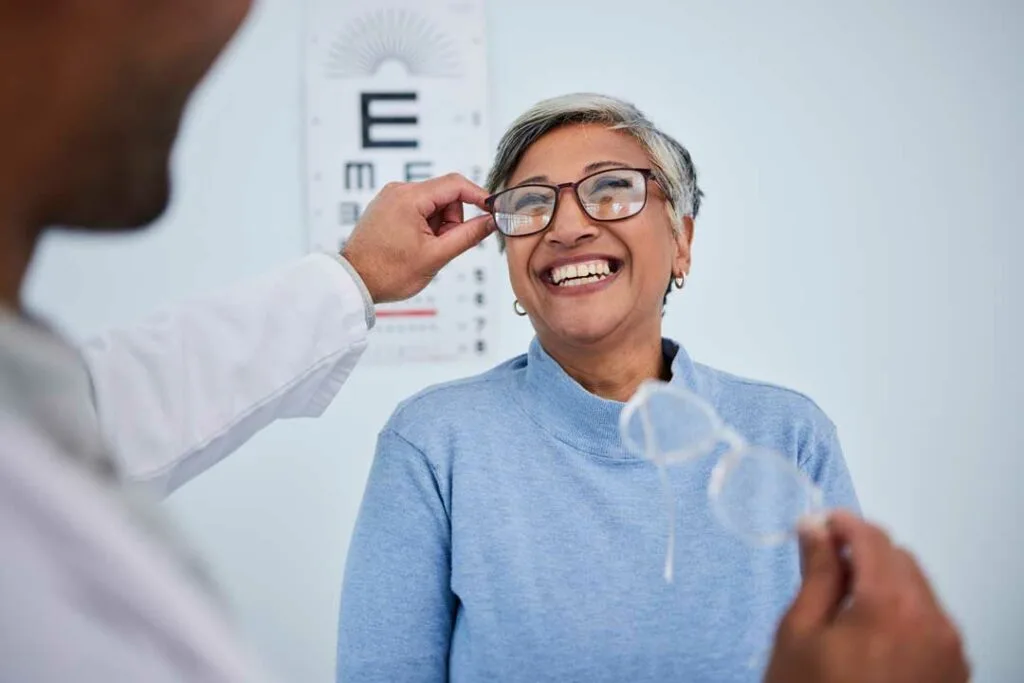As you get older, maintaining good eye health becomes increasingly crucial. Regular eye exams play a vital role in preserving vision and detecting potential issues before they become serious problems. However, many seniors might think that if they can see well enough, there’s no need to visit an eye doctor. This couldn’t be further from the truth!

Your eyes can be affected by various age-related conditions that don’t always have noticeable symptoms in their early stages. By the time you notice changes in your vision, some conditions may have already progressed significantly.
That’s why it’s essential to understand the numerous reasons why regular eye exams are so important for seniors. Keep reading to explore these reasons in detail.
Track Age-Related Changes
As you enter your golden years, your eyes become more susceptible to certain conditions. Age-related macular degeneration, cataracts, glaucoma, and diabetic retinopathy are just a few of the issues that become more common as you get older. These conditions can develop slowly and painlessly, making them difficult to detect without a professional examination.
Regular eye exam for seniors allows your eye care professional to monitor any changes in your vision and eye health over time. They can spot early signs of these conditions and recommend appropriate treatments or lifestyle changes to slow their progression. Early detection often leads to more effective treatment options and better outcomes.
Detect Overall Health Issues
Your eyes aren’t just windows to your soul; they’re also windows to your overall health. During an eye exam for seniors, an optometrist or ophthalmologist can detect signs of systemic health issues that might otherwise go unnoticed. High blood pressure, diabetes, and even certain types of cancer can sometimes be identified through an eye examination.
For instance, changes in the blood vessels of your retina might indicate hypertension or diabetes. Early signs of arthritis or high cholesterol can also be detected during these exams. Catching these issues early will not only protect your vision but potentially your overall health as well.
Maintain Independence and Quality of Life
For seniors, maintaining independence is often a top priority, and having a good vision is essential to attaining this independence. It allows you to continue driving, reading, watching television, and engaging in your favorite activities. Regular eye exams help ensure that your vision remains as sharp as possible, allowing you to continue these activities safely and comfortably.
Moreover, poor vision can increase the risk of falls, which can be particularly dangerous for older adults. Keeping your eyesight in check can help you avoid such accidents and maintain your mobility and independence.

Update Prescription
Over time, your vision needs can change more frequently. What worked for you a year or two ago might not be sufficient now. Regular eye exams allow for timely updates to your eyeglasses or contact lens prescription. This ensures that you’re always seeing as clearly as possible, reducing eye strain and discomfort.
Detect And Manage Age-Related Eye Conditions
Some of the age-related eye conditions that regular exams can help detect and manage are:
Cataracts
Cataracts are a clouding of the eye’s natural lens, leading to blurry vision and increased glare sensitivity. They’re extremely common in older adults, but their progression can be so gradual that you might not notice the changes until your vision is significantly affected. Regular eye exams can detect cataracts early and help you plan for treatment when necessary.
Glaucoma
Glaucoma is often called the “silent thief of sight” because it can cause irreversible vision loss without any noticeable symptoms in its early stages. It’s caused by increased pressure within the eye, damaging the optic nerve. Regular eye exams typically include tests for eye pressure and optic nerve health, which are crucial for early glaucoma detection and management.
Age-Related Macular Degeneration
Age-related macular degeneration (AMD) affects the central part of your vision, which is essential for tasks like reading and recognizing faces. There are two types of AMD: dry and wet. While there’s no cure for dry AMD, certain supplements can slow its progression. Wet AMD can be treated if caught early. Regular eye exams can detect early signs of AMD, so your doctor can intervene promptly.
Diabetic Eye Disease
For seniors with diabetes, regular eye exams are even more critical. Diabetic retinopathy, a complication of diabetes that affects the blood vessels in the retina, can lead to vision loss if left untreated. Regular exams can detect early signs of this condition, allowing for timely treatment and management.
Dry Eyes
Many seniors experience dry eye syndrome, which can cause discomfort, blurry vision, and even an increased risk of eye infections. Regular exams can diagnose this condition and provide solutions, from over-the-counter artificial tears to prescription medications or in-office treatments.
Keep in mind that many of these conditions develop slowly and painlessly, making professional examinations crucial for timely intervention.
Key Takeaway
Regular eye exams are an essential part of health care for seniors. By detecting eye conditions early and managing them effectively, you’re taking a proactive step towards ensuring a high quality of life in your golden years. Don’t wait for symptoms to appear – proactive care through regular check-ups is key to preserving your eye health as you age.

Jessi is the creative mind behind The Coffee Mom, a popular blog that combines parenting advice, travel tips, and a love for all things Disney. As a trusted Disney influencer and passionate storyteller, Jessi’s authentic insights and relatable content resonate with readers worldwide.
